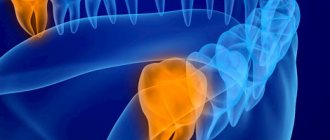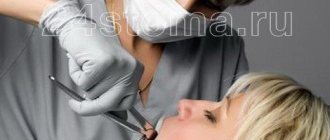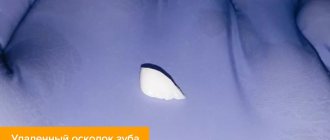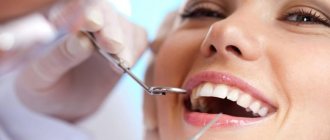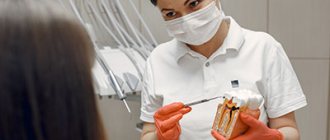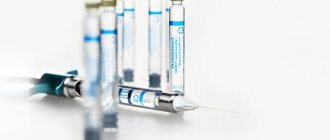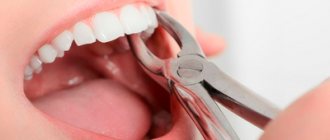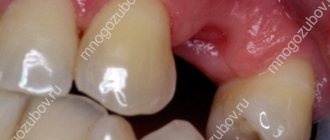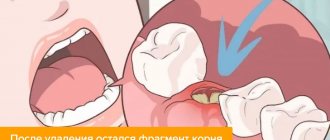The best way to stop drooling is
The following procedures may help:
Changing the position of the berths
People usually drool in their sleep.
If a person is drooling in their sleep, switching to sleeping on their back can be a quick fix. Gravity will prevent saliva from flowing out of the mouth.
A wedge pillow can help a person stay in one position all night, and many are available for purchase online.
Treatment of allergies and sinus problems
Sinus infections and allergies can lead to increased saliva production and nasal congestion.
A blocked nose forces a person to breathe through the mouth, which makes it easier for saliva to leave the body.
Take medication
Your doctor may recommend medications to relieve drooling, especially in patients with neurological conditions.
Scopolamine, also known as hyoscine, intercepts nerve impulses before they reach the salivary glands.
This medication is often taken as a patch placed behind the ear. The patch releases the medication continuously, and one patch usually lasts about 72 hours.
Side effects of scopolamine may include:
- dizziness
- drowsiness
- cardiopalmus
- dry mouth
- itchy eyes
Another option is glycopyrrolate. It also reduces saliva production by blocking nerve impulses, but the side effects can be more severe. These may include:
- irritability
- problematic urination
- hyperactivity
- skin washing
- decreased sweating
Receive Botox injections
Botulinum toxin (Botox) injections have been used to treat drooling in people with neurological disorders.
The doctor injects Botox into the salivary glands, usually using ultrasound imaging. Botox paralyzes the muscles in the area, preventing the salivary glands from working.
The effects of the injections usually last about 6 months and may recur.
A 2012 study found that patients with neurological disorders who received Botox showed a significant reduction in drooling levels.
Visit to a speech therapist
Depending on the cause of drooling, your doctor may recommend a speech therapist.
The goal is to improve jaw stability, tongue strength and mobility. This therapy can also help a person close their lips completely.
Speech therapy may take some time, but a person can learn techniques to improve swallowing and reduce drooling.
Use an oral appliance
An oral appliance is a device placed in the mouth to facilitate swallowing. The device helps with tongue positioning and lip closure.
When a person swallows better, they are likely to drool less.
Have surgery
Surgery is a last resort and is usually only used if an underlying neurological condition causes severe drooling.
Surgery may be recommended for people who experience excessive and prolonged drooling after other treatments have not worked.
Methods may include removal of the sublingual or submandibular salivary glands.
Complications with the development of dysphagia
Dysphagia is a very dangerous disorder that can provoke the development of a number of dangerous complications.
The main types of complications that can be encountered if treatment is not started on time:
- Weight loss, which can reach catastrophic proportions. The patient cannot eat, the body does not receive the necessary nutrition and is exhausted.
- With neurological disorders, food often enters the nasopharynx, causing asphyxia. For such a patient, every meal is a risk of suffocation.
- Disturbance and difficulty breathing.
- Development of inflammatory processes of the esophagus.
- Development of pneumonia.
- Dehydration of the body.
Many diseases develop simultaneously with dysphagia, either as the cause of its occurrence or as a consequence of its damage.
Tea party
Simple solutions can reduce or eliminate drooling during sleep.
If a person suspects they have reason to believe they are sick, they should seek medical help. Depending on the severity of the disease, drooling can have negative medical and psychosocial consequences if left untreated.
Management techniques are often successful.
We've selected related products based on product quality and listed the pros and cons of each to help you determine which ones will work best for you. We have partnerships with some of the companies who sell these products, which means Healthline UK and our partners may receive a share of the revenue if you make a purchase through the link(s) above.
What happens when you have a swallowing disorder?
The patient loses the ability to swallow only solid food, and in more severe cases, liquid and saliva.
The stomach contents flow back into the esophagus and throat. There is a feeling of a lump in the throat due to the fact that the acidic environment of the stomach enters the throat and burns the mucous membrane.
During swallowing, a feeling of lack of air appears.
After eating food, there is a feeling for some time as if it is stuck in the throat.
There is a sore throat and shortness of breath.
Is it possible to swallow saliva from snus?
Snus differs from tobacco in cigarettes due to its increased nicotine content. When smoking, this alkaloid is partially burned, while the rest of the nicotine is absorbed through the mucous membrane of the mouth and lungs. In snus, it enters the bloodstream through the oral epithelium, but it partially dissolves in saliva and can be swallowed.
There is no direct ban on swallowing saliva from snus, so some consumers practice this. But those who try chewing tobacco for the first time may experience unpleasant reactions. Snus bags are kept moist and mixed with baking soda, which provides an alkaline environment. Thanks to a pH above 7.8, the maximum amount of nicotine is released and absorbed. It remains dissolved in the mouth for some time, so swallowing saliva will cause the alkaloid to enter the stomach.
The bag is absorbed within 15-30 minutes, after which it is spat out. Some users can hold it in their mouth for up to an hour. The longer snus is in the mouth, the less nicotine remains in it. Therefore, swallowing saliva 30-40 minutes after placing the bag in the mouth is no longer dangerous.
What to do after tooth extraction? We answer the most popular questions
- Can I apply cold?
You cannot apply anything directly to the hole, but you can apply something cold, wrapped in a clean, dry towel, to the cheek in the area of tooth extraction for 3-5 minutes and repeat if necessary. This will help avoid swelling.
- Is it possible to brush your teeth?
Not only is it possible, but it is also necessary. Teeth should be brushed in the usual way, including those located next to the socket - just do it more carefully so as not to injure or remove a blood clot. You should also rinse your mouth without active actions.
- Is it possible to heat the area of an extracted tooth?
It is strictly forbidden to do this: warming up is fraught with inflammation, and then suppuration.
- Is it possible to smoke cigarettes after tooth extraction?
You should not smoke for at least 3 hours after the procedure, or better yet, quit smoking for a couple of days. Nicotine causes vasospasm, which impairs tissue healing.
- Is it allowed to drink alcohol after the procedure?
You should not drink alcohol within 24 hours after the procedure, and if antibiotics are prescribed, the ban applies to the entire course of treatment (i.e. 5-7 days).
- Do I need to take any medications?
If your doctor has not prescribed medication, you do not need to take the pills yourself. If necessary, you can take a pain reliever.
- Is it necessary to do antiseptic rinses?
If nothing worries you and your doctor has not prescribed such procedures, there is no point in doing anything. Rinsing and other manipulations can lead to a blood clot being washed out of the socket, food debris getting there, inflammation and suppuration. If the tooth was removed due to inflammation, the flux was opened, there is an infectious process in the oral cavity, baths with an antiseptic solution are prescribed. The procedure is carried out three times a day: keep the product in the mouth for about 60 seconds.
- What does the socket of an extracted tooth look like normally?
After removal, a burgundy blood clot forms in the hole, then due to the formation of fibrin, the surface of the clot becomes whitish or yellowish. The very next day the clot becomes denser. If in the following days the clot becomes loose, and the wound continues to bleed, there is bad breath and pain in the area of the extracted tooth, you need to consult a doctor.
- What to do if blood comes from the hole?
In the first half hour or hour, blood may come out a little from the hole, especially if you touch it with your tongue. In this case, you should apply a sterile bandage to the wound and wait 15-20 minutes, then carefully remove it. If bleeding occurs later, and a lot of blood is released, you should consult a doctor.
- When can caries be treated after tooth extraction?
Planned treatment can begin no earlier than 7 days later, and if the procedure was complex or several teeth were removed, a pause of 14 days will be required. However, if acute pain occurs, you cannot postpone visiting a doctor.
- What else cannot be done after tooth extraction?
- Wash in a hot bath for the first 24-36 hours.
- Sleep on your side on the side of the extracted tooth for the first 1-3 days.
- Steam in a bathhouse and sauna for 5-7 days.
- Touch the wound with your tongue or foreign objects.
- Yawn widely and actively use facial expressions if stitches are applied.
- Take aspirin (blood thinner).
- Rinse your mouth vigorously for 3 days.
Finally, we’ll tell you what you should be wary of. If, after 24 hours after the procedure, severe pain persists, the wound is bleeding, or there is swelling, it is better not to wait and go for an examination by a dentist without delay!
Possible consequences
People who have not previously smoked or used snus may experience the following reactions after swallowing saliva from snus:
- stomach ache
- dizziness
- tachycardia
- nausea and vomiting
- headache
- digestive tract spasm
- cold sweat
The earlier the saliva was swallowed, the greater the chance that acute nicotine poisoning will occur.
It often occurs in a mild form and does not require the help of a doctor. People with chronic diseases of the cardiovascular system, lungs or kidneys are more likely to have a severe outcome.
Nervous throat
Every patient has the right to receive a full medical verdict if it is so important for him to calm down and stop beating himself up. But there are three signs by which a person is able to independently determine whether his swallowing process really has a connection with nerves, and not with organic diseases:
Upon waking up, the patient may not experience difficulty swallowing for some time. The brain needs at least 15 minutes to “remember” the current problems and get ready to repeat them.
Cancer and thyroid are, of course, no joke. But, oddly enough, they do not cause pharyngeal spasms during swallowing saliva. And when such problems begin, the diseases are already so obvious and accompanied by additional painful symptoms that it is impossible to doubt them.
If you get too carried away by something, you may not even notice how saliva has successfully passed along its route to the stomach several times. But as soon as the patient comes to his senses, he again cannot swallow.
What to do if you feel unwell
If you swallow saliva from snus within a few minutes after inserting the bag, unpleasant symptoms may appear, which indicate mild poisoning. Severe and moderate intoxications in this case are very rare. You can improve your condition using the following techniques:
- take out the bag
- drink large amounts of water and induce vomiting
- accept sorbents
- drink more warm water
Sometimes it is recommended to drink sweet black tea or a glass of milk. With an overdose of nicotine, you can feel an improvement, but the reaction is always individual.
Any available means are used as a sorbent: Smecta, activated carbon, Enterosgel. They are drunk within 30 minutes after the onset of malaise, later the nicotine is completely absorbed, enterosorbents have no effect on it.
If you feel unwell, you do not need to use physical activity - rest and proper sleep are more effective. Mild intoxication disappears within a few hours. And if saliva is swallowed after dissolving snus, poisoning does not occur.
Treatment or what to do when it is difficult to swallow
If the symptom is caused by oropharyngeal dysphagia, then in this case it is necessary to look for methods of treating neurological diseases that are difficult to treat. Therapy consists of changing the diet, teaching the patient a new way of swallowing food, and feeding through a tube.
What to do if it’s hard to swallow, but your throat doesn’t hurt:
- If the cause is the endocrine system, then a course of therapy consisting of iodine-containing drugs may be prescribed;
- If a mucous infection is affected, it is necessary to be examined by an ENT specialist, who will prescribe additional examinations of a throat smear that will help determine the causative agent of the disease.
- When a throat problem is associated with a muscle disorder, a course of treatment, procedures, or massage are prescribed;
- Esophagus problem. The cause of compression of the esophagus may be a change in the structure of the aorta and glands. In this case, the gastroenterologist will prescribe a fibrogastroduodenoscopy procedure. Based on the results of stomach probing, the doctor will be able to prescribe a course of treatment;
- A psychologist can eliminate emotional disorders. If the reasons are more serious and there is a fact of a psychiatric illness, consultation with a psychiatrist is necessary.
Related posts:
- Ingrown toenails on both big toes. How I overcame the disease after 12 years of suffering. Ingrown toenail...the mere mention of this seemingly harmless ailment prompts...
- You don’t take the city as a seat, or what a sedentary lifestyle can lead to At the beginning of the last century, it was rare to see something falling out…
- Signs You're Eating Too Much Sugar Many people are unaware of their sugar addiction. Sugar…

